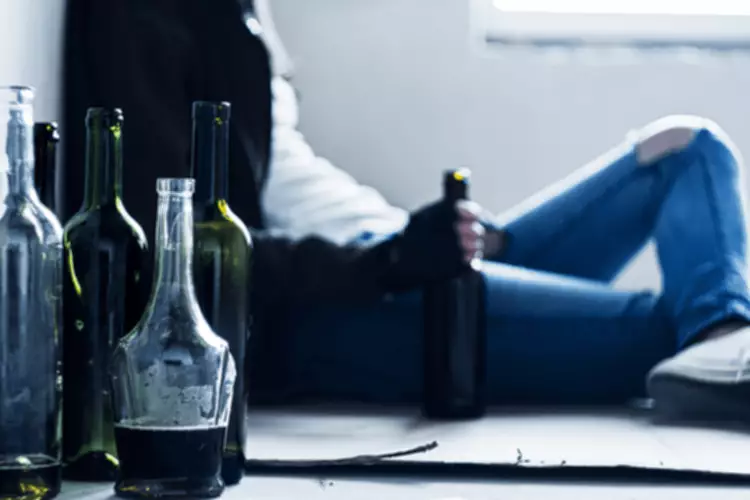
Typically beers, lagers, wines, sherries and liqueurs will have this effect. However, alcohol inhibits the liver from turning proteins into glucose which means you’re at a greater risk of hypoglycemia once your blood sugars start to come down. If you have a number of these drinks, you can expect to see a rise in blood sugar followed by a steady drop a number of hours later, often whilst asleep.

In any case, alcohol use in both diabetics and nondiabetics can have deadly consequences without treatment. The pancreas is the site of insulin production in the body, and the liver is the primary organ responsible for processing substances like drugs and alcohol. Excessive amounts of alcohol can cause severe liver damage and disease, affecting its ability to work properly. Chronic excessive alcohol consumption alone can also cause nerve damage called alcoholic neuropathy. Adding alcohol to the mix could make it worse if you already have nerve damage from diabetes. Research has shown that heavy drinking also worsens cardiometabolic index (CMI).
Your liver takes about 1 to 1.5 hours to process each alcoholic drink, and during that time, you may be at risk of low blood sugar. If you’ve had alcohol close to bedtime, you should test your glucose level; if it’s low, consume a carbohydrate-rich snack before bed. So, it’s a good idea to drink in moderation and only when your diabetes and blood sugar levels are well managed. You may want to talk to your doctor to see if drinking alcohol is safe for you and get guidelines based on your specific health concerns.
If you have questions about your drinking or you feel like you should be drinking less because of your diabetes but you can’t stop, talk to your doctor. They can help you change any potentially harmful drinking patterns and answer questions about drinking as safely as possible. After all, getting medical advice is always a good idea whenever you have questions concerning diabetes. If you’re already living with any of these conditions, alcohol may make them worse.

Living with type 2 diabetes often diabetes and alcohol blackouts means cutting out or cutting back on foods and beverages that can affect sugar (glucose) levels in the blood. Your healthcare provider can best determine what’s right for you. But if you drink, know that not all alcoholic beverages are created equal when it comes to diabetes. People with diabetes should be particularly cautious when it comes to drinking alcohol because alcohol can make some of the complications of diabetes worse. First of all, alcohol impacts the liver in doing its job of regulating blood sugar. Alcohol can also interact with some medications that are prescribed to people with diabetes.

The exception is sweet dessert wines, which pack 14 grams of carb in a tiny three-and-a-half-ounce glass. Within a few minutes of drinking alcohol, and for up to 12 hours afterward, alcohol can cause your blood glucose level to drop. After consuming alcohol, always check your blood glucose level to make sure it is in the safe zone. After you drink alcohol, your blood sugar levels can drop up to 24 hours later. Check your blood sugar before and while you’re drinking and then again before you go to bed. This means drinking can make it even harder for people with type 2 diabetes—which is defined by elevated glucose levels—to manage their blood sugar.
If you have diabetes and are wondering how much alcohol you should drink, it is worth reading the following list to see how much alcohol is contained in each type of drink. In some cases, a glass of wine will constitute two units, and a pint of beer can even reach three units. A drink serving is 12 oz of beer, 5 oz of wine, or 1.5 oz of hard liquor such as scotch, gin, tequila, or vodka. A person amphetamine addiction treatment should avoid sweetened liquor or alcohol mixed with sodas or punch.
Although alcohol does have an effect on blood sugar levels, with a few precautions and careful management, people with diabetes can also enjoy a drink. Moderate (eight to 14 drinks per week) and heavy (more than 15 drinks per week) were shown to elevate blood pressure. Moderate to heavy drinking also was more strongly linked to various stages of hypertension in people with type 2 diabetes.
“Energy drinks that have a lot of added sugar can contribute a significant number of additional calories to the daily intake, and cause weight gain,” Massey said. Caffeine decreases insulin sensitivity, which may be why blood sugar levels increase after an energy drink. Many people believe that drinking alcohol is a social activity and fun but seldom have they known about its long-lasting side effects. The American Diabetes Association (ADA) recommends no more than one drink per day for women and two drinks for men if you have diabetes.